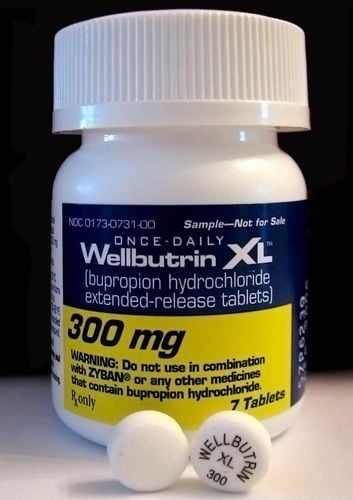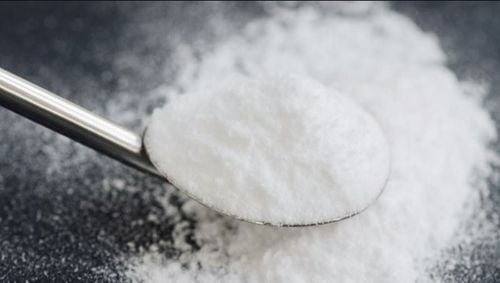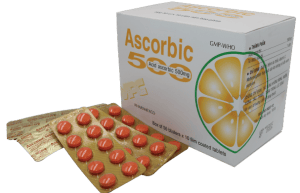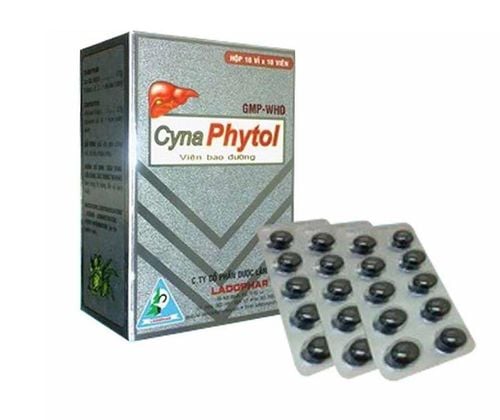This is an automatically translated article.
Turmeric is widely known as a spice, widely used in Indian dishes. In addition, turmeric is also widely used in traditional medicine with great effects for human health.
1. Is it good to eat turmeric? 10 health benefits of turmeric
1.1. Turmeric contains biologically active compounds These compounds are called curcuminoids, the most important of which is curcumin. Curcumin is the main active ingredient in turmeric, which has very strong anti-inflammatory and antioxidant effects. However, the curcumin content in turmeric is not high, around 3%, by weight. Curcumin is poorly absorbed into the bloodstream. Using turmeric with black pepper (containing piperine) enhances the absorption of curcumin by 2,000%. Curcumin is fat-soluble, so taking turmeric with a high-fat meal will make it better absorbed.
1.2. Curcumin is a natural anti-inflammatory compound Inflammation is an extremely important response, helping to protect the body from foreign invaders. Without inflammation, pathogens such as bacteria can easily enter and kill the body.
Although acute, short-term inflammatory conditions are beneficial, they can become a major problem when they become chronic and attack the body's tissues frequently. Scientists believe that chronic inflammation plays a relatively important role in most diseases such as: Heart disease, cancer, metabolic syndrome, Alzheimer's...
Curcumin is a compound with anti-inflammatory effects. strong inflammation. In fact, curcumin is so potent that it equates to the effectiveness of some anti-inflammatory drugs without the side effects. Curcumin helps block NF-kB, a molecule that enters the cell nucleus and activates genes involved in the inflammatory response. NF-kB is thought to play a key role in many chronic diseases.
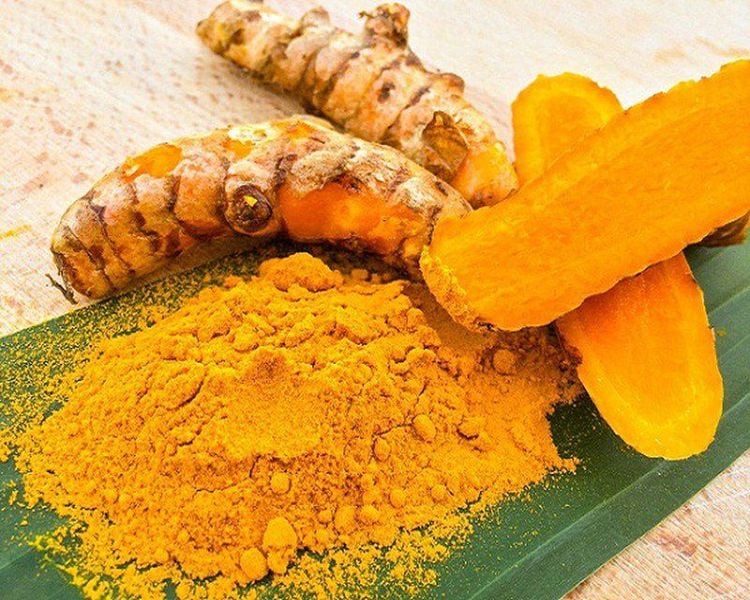
Hợp chất Curcumin trong nghệ mang đến rất nhiều lợi ích cho sức khỏe
1.3. Turmeric helps to significantly increase the body's antioxidant capacity. Oxidative damage is believed to be one of the mechanisms that cause aging and diseases of the body. This process involves free radicals, molecules that are highly reactive with unpaired electrons. Free radicals tend to react with important organic substances, such as proteins, fatty acids or DNA. The main reason that antioxidants are so beneficial is that they protect the body from free radicals.
Curcumin is a powerful antioxidant that can neutralize free radicals due to its chemical structure. In addition, curcumin also enhances the activity of antioxidant enzymes in the body. Thus, in addition to the ability to directly prevent, curcumin also stimulates the body's antioxidant capacity.
1.4. Curcumin improves brain function and reduces the risk of brain disease In certain areas of the brain, nerve cells have the ability to divide and multiply even into adulthood. One of the key drivers of this process is BDNF, brain-derived neurotrophic factor, a growth hormone that works in our brains. Many common brain disorders are associated with decreased levels of this hormone, including depression and Alzheimer's disease.
Curcumin can increase the amount of BDNF hormone in the brain. The compound could therefore be effective in delaying or even reversing many brain diseases and age-related decline in brain function. Curcumin also helps improve memory and make the elderly more alert.
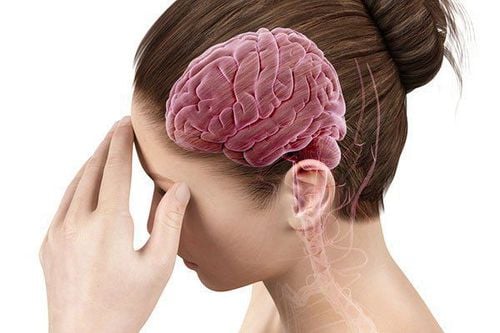
Dùng nghệ giúp giảm nguy cơ mắc các bệnh về não
1.5. Curcumin reduces the risk of heart disease Cardiovascular disease is the number 1 cause of death in the world. An important benefit of curcumin for heart disease is improving the function of the endothelium, the lining of blood vessels. Endothelial dysfunction makes the body's inability to regulate blood pressure, blood clotting and many other factors, this is the main cause of cardiovascular disease. Some studies show that curcumin improves endothelial function. In addition, curcumin helps reduce inflammation and oxidation. One study randomly observed 121 people undergoing coronary artery bypass graft surgery to receive either placebo or 4 grams of curcumin daily for several days before and after surgery. The curcumin group reduced the risk of having a heart attack in the hospital by 65%.
1.6. Turmeric can help prevent cancer Cancer is a dangerous disease characterized by uncontrolled cell growth. Curcumin has been studied as a beneficial herb in cancer treatment and has been found to affect the development, growth and spread of cancer at the molecular level.
Studies have shown that curcumin can contribute to the death of cancer cells and reduce the formation and growth of new blood vessels in tumors and metastasis (the spread of cancer). Many studies have shown that curcumin can help reduce the growth of cancer cells in the laboratory and inhibit the growth of tumors in test animals.
Whether high doses of curcumin (taken with an absorption enhancer such as piperine) can help treat cancer in humans has not been properly studied. However, there is evidence that curcumin can prevent cancer from occurring in the first place, especially cancers of the digestive system such as colorectal cancer.
In a 30-day study in 44 men with colon lesions that sometimes turned cancerous, 4 grams of curcumin per day reduced the number of lesions by 40%. Maybe one day curcumin will be used alongside conventional cancer treatments. It's too early to be certain, but it's promising and under investigation.
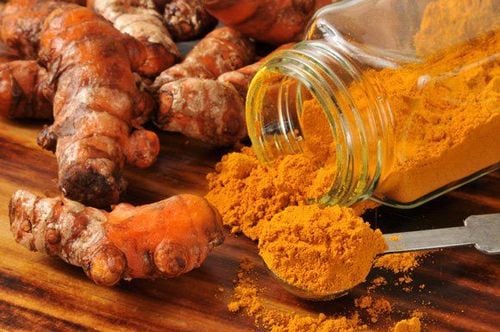
Nhiều kết quả nghiên cứu bước đầu cho thấy nghệ có tác dụng tới việc ngăn ngừa mắc bệnh ung thư
1.7. Curcumin May Be Helpful in Preventing and Treating Alzheimer's Disease Alzheimer's disease is the most common neurodegenerative disease in the world and the leading cause of dementia, for which there is currently no optimal treatment. for Alzheimer's disease. So, preventing the disease from occurring in the first place is an important priority.
We know that inflammation and oxidative damage play a role in Alzheimer's disease and that curcumin has beneficial effects on both. In addition, Alzheimer's disease is characterized by the accumulation of protein tangles called amyloid plaques. Studies show that curcumin can help clear these plaques.
1.8. Arthritis Patients Respond Very Well To Curcumin Supplements Arthritis is a common medical problem in Western countries. Many studies show that curcumin can help treat the symptoms of arthritis and in some cases be more effective than anti-inflammatory drugs. Many other studies have looked at the effects of curcumin on arthritis and noted improvements in various symptoms.
1.9. Curcumin Has Benefits in Treating Depression Curcumin shows some promise in the treatment of depression. In a randomized controlled trial, 60 people with depression were randomly divided into three groups. One group took Prozac, another took 1 gram of curcumin, and the third group took both Prozac and curcumin. After 6 weeks, curcumin led to the same improvements as Prozac. The group taking both Prozac and curcumin had the best treatment effect.
Depression has also been linked to decreased levels of brain-derived neurotrophic factor (BDNF) and contraction of the hippocampus, an area of the brain that plays a role in memory and learning. Curcumin helps increase BDNF levels, potentially reversing some of these changes. There's also some evidence that curcumin can boost brain neurotransmitters serotonin and dopamine.
1.10. Curcumin helps to delay aging and fight age-related chronic diseases. With its use in preventing cardiovascular diseases, cancer and Alzheimer's disease, curcumin has obvious benefits to increase longevity. For this reason, curcumin has become very popular as an anti-aging supplement.

Curcumin trong nghệ có thể hữu ích trong việc ngăn ngừa và điều trị bệnh Alzheimer
2. How much turmeric is enough?
Despite knowing the benefits of turmeric for health, many people still wonder and ask, is it good to eat a lot of turmeric and how much is enough?Studies typically use doses of 500–2,000 mg of turmeric per day, often in the form of an extract with a much higher concentration of curcumin than is found in natural foods.
For example, the average Indian diet provides about 2,000–2,500 mg of turmeric (60–100 mg of curcumin) per day. A similar amount in extract form can contain up to 1,900–2,375 mg of curcumin. In other words, the spice turmeric contains about 3% curcumin, compared with 95% curcumin in the extract. However, turmeric is still beneficial when used as a spice.
Although there is no formal consensus on effective doses of turmeric or curcumin, the following dosages have been used in research with promising results:
For osteoarthritis: 500 mg of the extract was used. turmeric twice daily for 2-3 months. For high cholesterol: use 700 mg of turmeric extract twice daily for 3 months. For itchy skin: 500 mg of turmeric three times daily for 2 months. High doses of turmeric and curcumin are not recommended for long-term use because of the lack of research confirming their safety.
However, the World Health Organization (WHO) has determined 1.4 mg per pound (0–3 mg/kg) of body weight as an acceptable daily intake. Remember, all herbal supplements should be used with caution.

Nghệ rất tốt cho sức khỏe nhưng cần sử dụng đúng liều lượng
3. Objects that should not use turmeric
Although turmeric is considered safe for most people, some people may have to avoid its use. The following people should use turmeric with caution:
Pregnancy and breast-feeding: There are not enough studies to determine if turmeric supplements are safe for pregnant or nursing women. Gallbladder disease: Turmeric can cause the gallbladder to shrink, making symptoms worse. Kidney stones: Turmeric contains a lot of oxalates, which can bind with calcium and cause kidney stone formation. Blood clotting disorders: Turmeric may slow blood clotting which in turn worsens bleeding problems. Diabetes: Turmeric may cause blood sugar to drop too low. Iron deficiency: Turmeric can interfere with the body's absorption of iron. Additionally, turmeric supplements may interact with certain medications such as blood thinners and diabetes medications. However, turmeric appears to be safe when used as a spice in foods.
With the above research and evaluation results, it can be seen that turmeric brings a lot of health benefits. However, to ensure safety, before using turmeric, you should consult your doctor to see if the use of turmeric is really necessary and suitable for your current health condition or not.
General health checkup package - Vinmec International General Hospital is currently developed for all types of customers. With the above package, customers will receive a comprehensive health check through blood tests, urine, liver, scans, screenings... so that the doctor can make appropriate assessments and indications for each patient. customer case. The health check-up package is performed by a team of qualified doctors combined with modern equipment system, so you can be completely assured of the results.
Please dial HOTLINE for more information or register for an appointment HERE. Download MyVinmec app to make appointments faster and to manage your bookings easily.
Reference source: healthline.com




